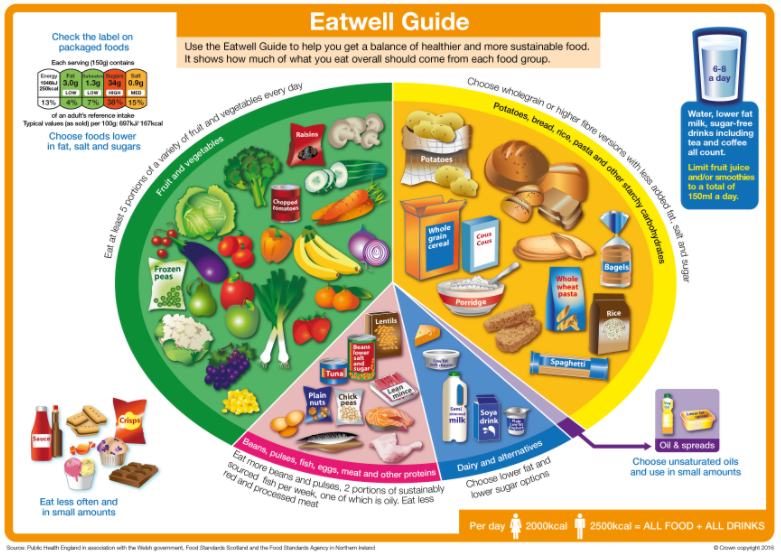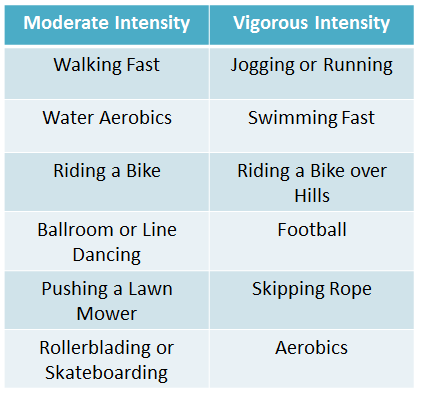A person’s weight will depend on their energy intake (calories consumed in food and drink) and how much energy the body burns through activity:
- The bodyweight will remain the same if the amount of calories consumed equals the amount of energy the body expends.
- If more calories are consumed than the amount of energy burned the body gains weight, converting the excess energy into fat that is stored in the body.
- If fewer calories are consumed than the body expends, the body loses weight and will access the body fat or energy store to convert it to generate the energy needed.
It is not recommended to lose weight rapidly as anything in excess of a kilogram per week may see a loss of muscle tissue instead of fat which isn’t sustainable weight loss. It is recommended to lose between 0.5 to 1kg per week equalling approximately 1-2lb.
What is a balanced diet?
A useful tool to help visualise the proportions of each food group that make up a healthy diet is the eat well plate (see www.nhs.uk to access an interactive guide to the eatwell plate)

Exercise
As a nation, we are now leading a more sedentary lifestyle as many people do less physical jobs and technology means that everyday activities are less physical. Therefore it is important to increase our levels of activity. Exercise is just as important as a balanced diet as it helps to keep the body healthy through strengthening muscles and burning calories.
Adults between 19 and 64 years are recommended to do 150 minutes (2 hours and 30 minutes) of moderate intensity aerobic activity each week or 75 minutes (1 hour and 15 minutes) of vigorous intensity aerobic activity. It is also recommended that an adult does muscle strengthening activity on at least two days per week. Examples of moderate and vigorous intensity exercise are:

It is sometimes difficult for people to understand the difference between moderate and vigorous exercise but you could say to customers that moderate exercise means that your heart rate should rise enough to make you sweat but still be able to talk. Whereas vigorous exercise should raise the heart rate significantly and it should be difficult to talk without quick and regular breaths. Customers who have existing health problems that limit their ability to exercise should be referred to the pharmacist or their GP.
Many people find it difficult to fit the recommended levels of exercise into their daily life, here are a few tips you can give to customers:
- Take the stairs rather than the lift or escalator.
- Park the car at the far side of the car park rather than immediately outside your destination.
- Walk to the next bus stop rather than the nearest stop or get off a stop earlier and walk.
- Find activities that are convenient and enjoyable as you are more likely to keep them up.
- Exercise with a friend as you can encourage and motivate each other.
- Join in with a team sport as it can become a social activity as well as exercise.
- Get up 15 minutes earlier and go for a brisk walk before breakfast.
- Invest in a pedometer and see how many steps you are taking, the recommended level is 10,000 steps per day.
